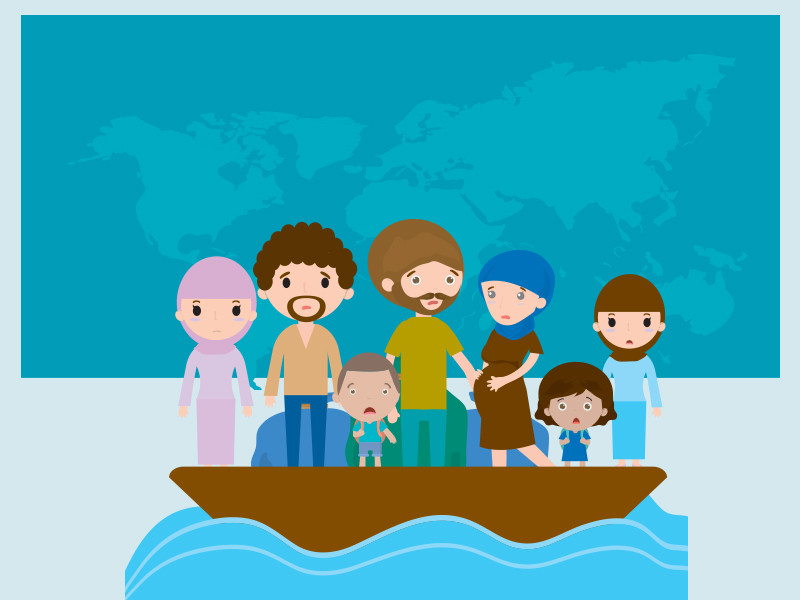Geneva: The digital economy can provide job opportunities for many young refugees but ensuring decent working conditions will require new directions in thinking and action, says a new ILO report.
The report, Towards decent work for young refugees and host communities in the digital platform economy in Africa: Kenya, Uganda, Egypt , finds that digital gig work has the potential to generate income for refugees.
Since they often struggle to enter local labour markets, refugees may turn to prominent digital platforms such as Jumia or Upwork in the absence of local livelihood opportunities.
But there are two major concerns relating to refugee's work on digital platforms; decent work deficits and a lack of connectivity.
Kenya, Uganda and Egypt, the three countries studied in the report, have all invested heavily in the digital economy and adopted national strategies for increasing digital access.
Yet in 2020 only 22.5 percent of the Kenyan population was using the internet, compared with 57 percent in Egypt and 24 percent in Uganda.
Globally, while 93 per cent of refugees are covered by at least a 2G network, they are 50 per cent less likely than the general population to have an internet-enabled phone.
For refugee youth, the access is even more limited.
Other significant challenges include difficulties obtaining work permits, unreliable electricity supply and internet connection, a lack of access to suitable hardware and software or access to digital payment mechanisms.
"The unequal spread of internet connectivity, inequalities in digital skills and digital literacy, alongside the specific obstacles that many refugee populations face in accessing digital economies and decent digital work make it difficult to apply for these jobs," said Andreas Hackl, the author of the report, in a press release on Thursday.
"Without coordinated action, the digital economy can reinforce the deeply rooted social and economic inequalities that govern the young refugees' lives," Hackl added.
Initiatives are in place to facilitate refugees' access to the digital economy.
Intermediary organizations such as social impact labour platforms offer to redistribute work opportunities to refugees and negotiate fees and conditions with the platforms on their behalf.
Examples of digital skills training, such as coding academies, boot camps and digital technical and vocational education and training (TVET), have been established in Kakuma camp in Kenya, the Bidi Bidi settlement in Uganda and the large refugee-hosting cities in Egypt, such as Cairo.
Cek Berita dan Artikel yang lain di Google News
FOLLOW US
Ikuti media sosial medcom.id dan dapatkan berbagai keuntungan



















